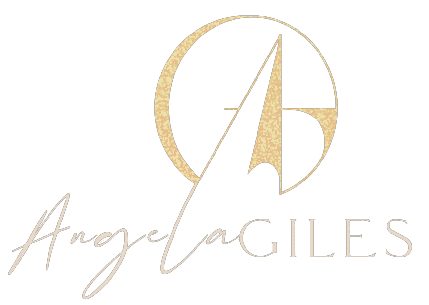We may earn money or products from the companies mentioned in this post.
Are you thinking of starting a blog? It’s time to stop procrastinating and just go ahead to do it. You’re at the beginning of an amazing blogging journey, and I’m really glad to be able to accompany you from the start. Do not worry about not knowing where to start or what to do. This beginner’s blogging guide was written with you in mind. You will need quite a lot of things. Even the most successful blogger on planet Earth started with 0 views from square 1, right. An open mind to embrace some basic techy stuff to get your website live.
Why should you start a blog?
There are many reasons to start a blog. Here are a few popular ones:
- Make money while working from home. Many of us make a full-time income blogging. Making money as a blogger is hard work, but it’s low risk, low overhead and low barrier to entry.
- Become a published author. It’s no secret, these days publishers rarely work with authors who don’t have an online presence. The reason is simple: it’s a lot easier to sell books to people who already know you. A blog is one of the easiest and most effective places to start.
- Get more exposure for your existing business or organization. A blog gives anyone, from individuals to large companies, the ability to reach a large number of people at very little cost.
- Just write. If you want to write, share your story, encourage others and build a community, a blog is a great place to do that.
- Simply put, a blog is an online home you own and control. Use it to develop the brand or reputation you desire, establish yourself as an authority in your field, connect with customers or find other like-minded people.
Should you start a blog for free?
Yes! Here’s a good advice though: a free blog is fine if it’s a hobby, but if you want to make money from your blog I don’t recommend starting a free blog. Why? A few reasons:
- Limited monetization. Some free services limit monetization (i.e. making money) unless you “upgrade” to a higher level. You’ll have to pay for that upgrade of course, so it defeats the purpose of having a free blog in the first place.
- Lack of support. Companies don’t offer free blogs out of the goodness of their hearts. They still want to make money somehow. If you’re only using their free service, they’re not making money from you. Therefore, they don’t have a lot of incentive to keep you happy. Sometimes this means you’ll have little to no support. Other times it means you’ll be badgered with offers for their paid-for products.
- Only basic features. This might not be a problem at first, but as you grow, you will almost certainly feel the pinch. Expandability and flexibility are key, both of which are limited with free blogging services.
- Switching isn’t easy. If you ever want to switch to a better service (very common among those who start a free blog), it’s a hassle and can be costly. Doing it yourself takes a lot of time and know-how. Hiring someone to do it correctly costs hundreds of dollars.
- Can’t use others for inspiration. You might not be able to do what your favorite bloggers are doing. This happens to new bloggers all the time. They start a blog for free. Soon they notice cool features on other blogs which they want too. The problem is, it’s not possible on their free service.
- In general, we value things we pay for. Blogging is hard work. One way to keep yourself accountable is to pay just a little bit for it.
If those common pitfalls don’t convince you, or a free blog is truly your only choice, I would go with Blogger.
3 Reasons You Should Not Start a Blog
So now you have 15 reasons why you should start a blog, and we’ve shown you how to start a blog, step-by-step, based on our personal experience. But after giving you those detailed instructions, which could save you hundreds of hours of wasted time, we also want to give you some good reasons why you should not start a blog. (Keep in mind that these reasons are just our opinions, and we do not pretend to offer them up as a collection of empirical blogging maxims.)
- You should not start a blog to make money. We need to get that out of the way first. If your primary objective is to replace your full-time income from blogging, forget about it. It doesn’t work that way. Do you think that Jimi Hendrix picked up his first guitar so he could “supplement his income”? No, he didn’t. Rather, he did it for the love of it, for the joy and fulfillment he received, and the income came thereafter—much later actually.
- Don’t plan on getting “Internet famous” right away. Not every site grows as fast as ours did, but that’s okay. The truth is that we kind of got lucky. We found a great domain name, we cobbled together a logo and site design that people liked, we write fairly well, and our content connects with people in a unique way. We didn’t start this site to become “famous” though. That’d be ridiculous. Our popularity came as a surprise to us, and it was a result of a little luck and a lot of hard, passionate work.
- Not all traffic is good traffic, so don’t worry about getting thousands of readers right away. Spend your time producing meaningful creations and eventually the audience will show up.
- The funny thing is that all these things can happen. You could make a full-time income from building a blog. We do it, Corbett Barr does it, and so do many others. And you could become Internet famous like Leo Babauta or Chris Brogan. But if these are the sole reasons why you start blogging, you’ll be miserable, because it will seem like a job, and if it feels like a job you won’t be passionate about it, and so you’ll either (a) hate it, (b) fall flat on your face, or (c) hate it and fall flat on your face.
So, you want to know how to begin a blog below 20 minutes?
Steps 1 and 2: Get reliable hosting and domain name services.
Hosting is server space on the internet where your website is at. Basically, if you’ve a house, it’s sort of like the land your house is on. As a newbie, you might get confused by the tons of available choices. Picking one can really be a pain the ass. Should you go for blogspot or Wix? You should always self-host and own your own blog. By that, I mean owning your own servers and URL. Do not be reliant on other people. You don’t want your blog to disappear overnight. Own your personal assets.
The different kinds of hosting available There are different types of hosting available.
- Shared hosting is when you share your server with other websites.
- VPS hosting is when you share your server with other websites, but a portion of the available resources are reserved for you.
- Dedicated hosting is when the server only has your website. You can google if you’re really interested in the nitty-gritty technicalities.
When you’re small, shared hosting is more than enough for you. You can always upgrade to dedicated hosting when your website is bigger. Recommended Hosting Provider: SiteGround. It is one of the most affordable platforms around.
Step 3: Install WordPress.
Proceed to the customer area and set up your website. There’ll be a pop-up asking you to install WordPress. Follow the account setup assistant. It’s a very easy 1-click installation process.When in doubt, feel free to ask SiteGround’s support. They’ll guide you there.
There are several web building platforms, from Tumblr to Squarespace, but none of these give you the control, ownership and customization options that you might need. For many people, a self-hosted WordPress blog is still a favorite serious platform.
Step 4: Write your first post and just publish it.
Do you know that many web owners never get around to even publishing their first post? Consequently, 99.99% of these blogs die and fizzle out. Writing your first post gets you in the groove and dramatically increases your chance of following through with your blog instead of leaving it to rot.
It is highly recommended to get your first post out there ASAP. This can increase your chance of success SO much. It doesn’t even have to be a long post! A simple introductory post, along with what users can expect from your website is more than enough for a first post.
Step 5: Find a suitable theme.
A theme dictates the overall look and design of your website.
Here are your options:
- Free ones from the WordPress marketplace
- Plenty of websites that sell really nice designs like Divi or Studiopress
- Hire a website designer and get real professional from the get-go
A lot of people would start by buying their own website theme.
Blogging For Beginners In a Nutshell, these are the things you need to accomplish.
- Get hosting at SiteGround
- Have a domain name registered
- Install WordPress
- Write your first post
- Find a nice theme
How to improve your blog posts?
1. Define Your Ideal Readers.
Once you’ve found your niche, you need to know who will be reading your blog. For example, we blog about living a meaningful life with less. Thus, our ideal readers are people who are interested in exploring minimalism so they can clear the path toward more meaningful lives. If you want to write about your newborn baby growing up, that’s wonderful: your ideal readers are probably your friends and family. If you want to write about restoring classic cars, that’s cool, too. Tailor your writing to your readers (whether it’s your family or local community or whoever else will read your blog).
2. Add Value.
Your blog must add value to its readers’ lives. You want to help people solve problems. This is the only way you will get great quality readers to your site (and keep them coming back). Adding value is the only way to get someone’s long-term buy-in. We both learned this after a decade of leading and managing people in the corporate world. With everything you write, it’s worth asking: Is this adding value?
3. Be Yourself.
Part of being interesting is telling your story. Every person is unique, and your story is an important one. The important part of storytelling, however, is removing the superfluous details that make the story uninteresting. A great storyteller removes 99% of what really happens—the absorptive details—and leaves the interesting 1% for the reader.
4. Time.
Once you’ve learned how to start a blog, you’ll learn that blogging takes a lot of time, especially if you’re as neurotic as we are (we spent over eight hours testing the fonts on this site). And see those Twitter and Facebook icons in the header? We spent hours on those, deciding what was right for us). That said, once you have your design set up, don’t tweak it too much. Instead, spend the time on your writing.
5. Vision.
The reason our site design looks good is because we have a great host, we have a great theme, and most important, we had a vision of how we wanted our blog to look. Once we had the vision, we worked hard to make that vision a reality. (Note: neither of us had any design experience before starting a blog.) It’s hard to create a beautiful blog if you don’t know what you want it to look like.
6. Social Media.
Yes, we recommend using Twitter, Facebook, and Instagram to help connect with your audience and other bloggers, but don’t get too caught up in it. Focus on the writing first, social media thereafter.
7. Ignore Negative Criticism and Stupidity.
Sure, we get a lot of negative comments and stupid questions from ignorant people who aren’t really our readers (e.g., negative comments like “You’re not real minimalists” and stupid questions like “Are you guys gay?”). We call these people seagulls: they fly in, crap on your site, and fly away. But we pay them no mind, because we didn’t start our blog for them. Delete their comment and move on.
8. Research.
Spend time researching what you’re writing about. The reason we are able to use so many helpful, relevant links in our essays is because we put in the time to research our topics.
9. Keep It Simple.
This is where minimalism can be applied to starting any blog, irrespective of its genre. No need to place superfluous advertisements or widgets all over your site. Stick to the basics and remove anything you don’t need—remove anything that doesn’t add value.
10. Live Your Life.
You’re blogging about your life (or about certain aspects of your life, at least), so you still need to live your life. There are things that we always put before writing: exercise, health, relationships, experiences, personal growth, contribution. Simply put, live a life worth writing about.
AWeber Sign Up Form authentication failed. Please verify the settings to continue to use AWeber Sign Up Form.






